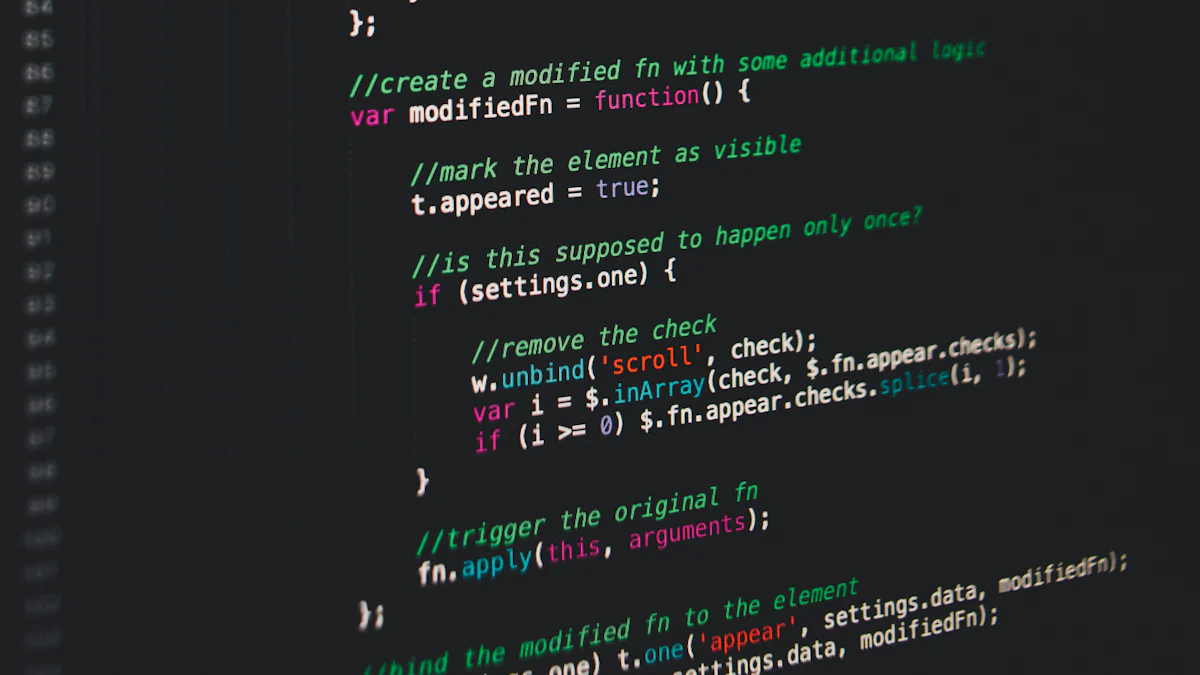How to Succeed in the Java SE 23 Certification Exam
Try Aihirely for
Smarter Interview Prep
Experience real-time AI support tailored to your Resume.
Boost your confidence and ace every question with
AI Mock Interview.

Image Source: pexels
Earning the Java SE 23 professional certification can open doors to exciting career opportunities. To succeed, you need a clear strategy and consistent effort. Preparation builds your foundation, while practice sharpens your skills. Confidence grows as you master key concepts and tackle challenges. Focus on understanding the exam’s structure and objectives. Break your study sessions into manageable steps. With the right mindset and tools, you can approach the exam with determination and achieve your goal.
Key Takeaways
-
Learn the exam format and main topics. Study Java basics, OOP, APIs, and advanced tools to cover all needed areas.
-
Make a study plan. Split your study time into small tasks and set easy goals to stay on track.
-
Code every day. Spend at least 30 minutes daily on coding exercises to improve your skills and feel more confident.
-
Try practice tests with a timer. This helps you get used to the real exam and manage your time better while staying calm.
-
Join groups or online forums. Talking with others can give you help, encouragement, and useful tips while studying.
Understanding the Java SE 23 Professional Certification Exam
Exam Structure and Format
The Java SE 23 professional certification exam evaluates your understanding of Java programming concepts and your ability to apply them. The exam consists of multiple-choice and multiple-select questions. Each question tests your knowledge of Java fundamentals, APIs, and advanced features.
You will have a fixed time limit to complete the exam, typically around 150 minutes. The test is computer-based and administered at authorized testing centers or online with remote proctoring. You must carefully read each question, as some may include code snippets or scenarios requiring analysis.
Tip: Familiarize yourself with the exam interface by taking practice tests. This will help you navigate the real exam with ease.
Key Topics and Objectives
The exam focuses on several key areas of Java programming. These include:
-
Java Basics: Understanding syntax, data types, and control flow.
-
Object-Oriented Programming (OOP): Mastering classes, inheritance, and polymorphism.
-
Java APIs: Working with collections, streams, and exceptions.
-
Advanced Features: Exploring modules, concurrency, and functional programming.
Each topic aligns with the objectives outlined in the official exam guide. Reviewing these objectives ensures you cover all necessary material.
Note: Pay special attention to new features introduced in Java SE 23. These updates often appear in the exam.
Passing Criteria and Scoring
To pass the Java SE 23 professional certification exam, you must achieve a minimum score, typically around 65-70%. The exact passing score may vary, so check the official guidelines. Each question carries a specific weight, and there are no penalties for incorrect answers.
Focus on answering as many questions as possible. If unsure, make an educated guess. Skipping questions reduces your chances of reaching the required score.
Reminder: Time management is crucial. Allocate time wisely to avoid rushing through the final questions.
Creating an Effective Study Plan

Image Source: unsplash
Assessing Your Current Knowledge
Start by evaluating your understanding of Java concepts. Identify areas where you feel confident and those that need improvement. Review the official exam objectives for the java se 23 professional certification. Compare your current skills with these objectives to pinpoint gaps in your knowledge.
You can use online quizzes or diagnostic tests to assess your strengths and weaknesses. These tools provide insights into your readiness for the exam. Keep track of your results to monitor progress as you study.
Tip: Focus on understanding the basics first. A strong foundation makes it easier to grasp advanced topics later.
Setting a Realistic Study Schedule
Create a study schedule that fits your daily routine. Break your preparation into smaller, manageable tasks. Allocate specific time slots for each topic. For example, dedicate one week to Java basics and another to object-oriented programming.
Set achievable goals for each session. Avoid overloading yourself with too much material at once. Consistency matters more than cramming. Stick to your schedule and adjust it if needed.
Reminder: Include short breaks in your schedule. Regular breaks improve focus and prevent burnout.
Organizing Study Sessions
Structure your study sessions to maximize productivity. Begin with a quick review of previous topics. Then, dive into new material. Use a mix of resources like books, tutorials, and coding exercises to keep sessions engaging.
Practice coding regularly to reinforce what you learn. Write small programs to apply concepts in real-world scenarios. End each session by summarizing key points. This helps retain information and prepares you for the next session.
Pro Tip: Use flashcards or notes to review important concepts during downtime.
Recommended Resources for Java SE 23 Professional Certification
Books and Study Guides
Books and study guides provide a solid foundation for your preparation. They explain concepts in detail and often include examples to help you understand complex topics. Look for resources that align with the official exam objectives. Some popular options include:
-
OCP Java SE 23 Programmer Study Guide by Jeanne Boyarsky and Scott Selikoff. This book covers all exam topics and includes practice questions.
-
Effective Java by Joshua Bloch. While not specific to the exam, this book deepens your understanding of Java best practices.
Use these books to review key areas like object-oriented programming, Java APIs, and new features in Java SE 23. Take notes as you read to reinforce your learning.
Tip: Choose books with practice exercises. Solving these exercises helps you apply what you’ve learned.
Online Courses and Tutorials
Online courses and tutorials offer flexibility and interactive learning. Many platforms provide video lessons, coding exercises, and quizzes. These resources help you grasp concepts faster and practice coding in real time. Some recommended platforms include:
-
Udemy: Offers comprehensive courses tailored to the java se 23 professional certification exam.
-
Pluralsight: Features in-depth tutorials on Java fundamentals and advanced topics.
-
YouTube: Free tutorials from experienced instructors can supplement your learning.
Enroll in a course that matches your skill level. Focus on courses that include hands-on projects and mock exams. These features prepare you for real-world scenarios and the exam environment.
Pro Tip: Watch tutorials on new Java SE 23 features. Understanding these updates gives you an edge in the exam.
Practice Tests and Mock Exams
Practice tests and mock exams are essential for success. They simulate the actual exam environment and help you build confidence. Regular practice improves your time management and problem-solving skills. Key benefits include:
-
Simulated exam environments reduce anxiety and improve strategies.
-
Improved time management through repeated practice enhances efficiency.
Use platforms like Whizlabs or Enthuware for high-quality mock exams. These tools provide detailed feedback, helping you track your progress. Aim to complete multiple practice tests before the exam.
Reminder: Treat mock exams like the real test. Follow the time limit and avoid distractions to build exam-day discipline.
Practice Strategies for Success
Coding Daily to Build Skills
Daily coding practice strengthens your programming abilities and builds confidence. It helps you internalize concepts and apply them effectively. Websites like HackerRank and LeetCode offer coding challenges for all skill levels. These platforms provide immediate feedback, which helps you learn from mistakes and improve quickly.
Working on personal projects is another excellent way to practice. Create small applications or solve real-world problems using Java. This approach allows you to apply theoretical knowledge in practical scenarios. Over time, you will notice significant improvements in your problem-solving skills and your ability to write efficient code.
Tip: Dedicate at least 30 minutes daily to coding. Consistency is more important than long, irregular sessions.
Taking Mock Exams Under Real Conditions
Mock exams simulate the actual test environment, helping you prepare for the Java SE 23 professional certification. Take these exams under timed conditions to mimic the real experience. This practice improves your time management and reduces exam-day anxiety.
During mock exams, avoid distractions and stick to the time limit. Treat each session as if it were the real test. After completing a mock exam, review your answers carefully. Identify mistakes and understand why they occurred. This process helps you refine your strategies and avoid repeating errors.
Pro Tip: Schedule mock exams weekly as you approach the exam date. Regular practice builds familiarity with the format and boosts confidence.
Solving Practice Questions to Target Weak Areas
Practice questions are essential for identifying and addressing weak areas. Focus on questions that challenge your understanding of difficult topics. For example, if you struggle with Java APIs or concurrency, prioritize exercises in these areas.
Use resources like online question banks or study guides to find targeted practice questions. Solve them regularly to reinforce your knowledge. Pay attention to detailed explanations for incorrect answers. This feedback helps you grasp concepts more effectively.
Reminder: Keep a record of topics where you make frequent mistakes. Revisit these topics until you feel confident.
Leveraging Community and Support
Joining Forums and Study Groups
Joining forums and study groups connects you with like-minded individuals preparing for the Java SE 23 certification. These platforms allow you to share knowledge, ask questions, and learn from others’ experiences. Active participation in a study group can help you stay motivated and accountable.
Look for forums like Coderanch or Stack Overflow, where Java professionals and learners discuss exam-related topics. Many of these communities have dedicated threads for certification preparation. Study groups on platforms like Reddit or Discord also provide a collaborative environment.
Tip: Choose a group that aligns with your learning style. Some groups focus on solving practice questions, while others emphasize concept discussions.
Seeking Mentorship and Advice
A mentor can guide you through the certification journey. Mentors often have firsthand experience with the exam and can provide valuable insights. They can help you identify weak areas, recommend resources, and share strategies for success.
Reach out to experienced colleagues, instructors, or professionals in your network. Platforms like LinkedIn are excellent for connecting with Java experts. When seeking mentorship, be clear about your goals and the type of support you need.
Pro Tip: Prepare specific questions before meeting your mentor. This ensures productive discussions and maximizes the value of their guidance.
Participating in Online Discussions
Online discussions expose you to diverse perspectives and problem-solving approaches. Engaging in these conversations helps you clarify doubts and deepen your understanding of complex topics.
Participate in active threads on platforms like Quora, GitHub Discussions, or Java-specific Slack channels. Share your thoughts, answer questions, and learn from others’ feedback. This interaction not only enhances your knowledge but also builds your confidence.
Reminder: Stay respectful and constructive in discussions. A positive attitude fosters meaningful exchanges and strengthens your learning experience.
Exam Day Tips for the Java SE 23 Professional Certification

Image Source: unsplash
Preparing the Night Before
The night before your exam is crucial for setting yourself up for success. Start by organizing everything you need. Ensure you have your ID, exam confirmation details, and any required materials ready. If you’re taking the test online, check your computer, internet connection, and webcam to avoid last-minute issues.
Get a good night’s sleep. Staying up late to cram can leave you feeling tired and unfocused. Instead, review your notes briefly and focus on relaxing. Eat a balanced dinner to fuel your brain and avoid heavy or sugary foods that might disrupt your sleep.
Tip: Set an alarm and plan to arrive early if you’re going to a testing center. This reduces stress and gives you time to settle in.
Managing Time During the Exam
Time management plays a key role in passing the java se 23 professional certification exam. Start by reading the instructions carefully. Skim through the questions to get an idea of their difficulty. Answer the easier ones first to build confidence and save time for the harder ones.
Keep an eye on the clock. Divide the total time by the number of questions to estimate how much time you can spend on each. If you get stuck, move on and return later if time permits. Avoid spending too much time on a single question.
Reminder: There’s no penalty for wrong answers. Make educated guesses instead of leaving questions blank.
Staying Calm and Focused
Staying calm helps you think clearly and perform better. Take deep breaths if you feel anxious. Remind yourself that you’ve prepared well and can handle the challenge.
Focus on one question at a time. Avoid worrying about how much of the exam is left. If you encounter a difficult question, stay positive and move on. Returning to it later with a fresh perspective often helps.
Pro Tip: Use any remaining time to review your answers. Double-check for mistakes or skipped questions.
Preparing for the Java SE 23 certification exam requires focus and determination. Understanding the exam structure and objectives lays the foundation for success. A well-organized study plan helps you cover all topics effectively. Using trusted resources like books, courses, and practice tests strengthens your knowledge.
Consistency is key. Practice coding daily, take mock exams, and seek help from communities or mentors. Stay positive and believe in your preparation. With the right mindset and effort, you can pass the exam and achieve your goals. Approach the challenge with confidence—you’ve got this! 💪
FAQ
What is the best way to start preparing for the Java SE 23 certification exam?
Begin by reviewing the official exam objectives. Identify your strengths and weaknesses using diagnostic tests. Create a study plan that focuses on one topic at a time. Use trusted resources like books, online courses, and practice tests to build your knowledge.
Tip: Start with Java basics before moving to advanced topics.
How many hours should I study daily for the exam?
Study for 1-2 hours daily. Consistency matters more than long sessions. Focus on quality over quantity. Break your study time into smaller chunks to improve retention. Adjust your schedule based on your progress and comfort level.
Reminder: Include short breaks to stay focused and avoid burnout.
Are mock exams necessary for passing the certification?
Yes, mock exams are essential. They simulate the real test environment and help you manage time effectively. Regular practice improves your confidence and highlights areas needing improvement. Treat mock exams as a critical part of your preparation.
Pro Tip: Take mock exams under timed conditions for the best results.
What should I do if I struggle with a specific topic?
Focus on targeted practice. Use online tutorials, coding exercises, or study guides to strengthen weak areas. Join forums or study groups to ask questions and learn from others. Revisit the topic until you feel confident.
Note: Practice coding examples to apply theoretical concepts.
Can I pass the exam without professional experience in Java?
Yes, you can pass without professional experience. Dedicate time to learning Java fundamentals and practicing coding. Use resources like books, courses, and mock exams to build your skills. Consistent effort and preparation will help you succeed.
Reminder: Hands-on coding practice is key to mastering Java concepts.
